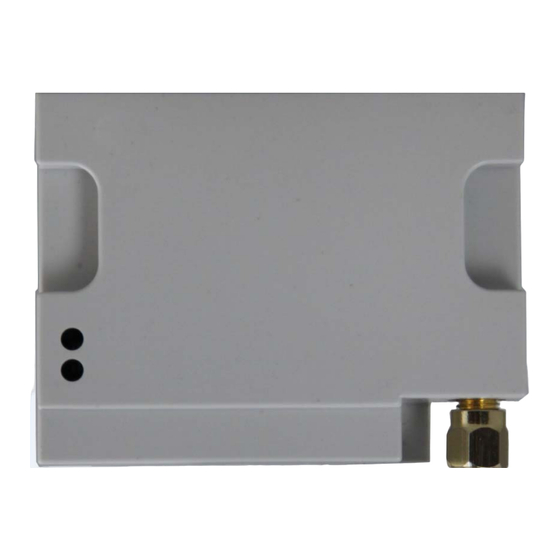
Summary of Contents for HEXING MJN901
- Page 1 Single Phase HexNet MJN901 User Manual Version Maker Date V0.0.1 WangGang 2017.01.20...
- Page 2 Hexing Electrical Co.,Ltd. 〉〉〉 Single Phase HexNet MJN901 1.Product Introduction The Single Phase HexNet is a highly integrated half-duplex micropower wireless data transmission device.The Single Phase HexNet embedded high-performance RF chip.User programming has very good flexibility. This device operating frequency include 916.25-926.65MHz. The real figure as shown in the figure below.
- Page 3 6. Installation instructions 1 Please insert MJN901 on the corresponding interface, and ensure the pin interface definitions are consistent with MJN901. 2 Interfaces are defined as follows:...
- Page 4 1 3 5 7 9 2 4 6 8 Interface Signal PIN Direction Description definition category Communication module analog 1,2 VCC Power part of the power supply, voltage is 5 v to 15 V. 3,4 GND GND GND Communication module data (TTL3.3 V level), serial port 5 ...
- Page 5 Installed in the sample Installed in the sample ...
- Page 6 Electric meter models only for reference. Note: 1 Thank you for using products of Hexing Electrical Co., Ltd. Please read this warning before using our products. If you have already started to use is that you have read and accept our all this.
- Page 7 FCC Warning: Any Changes or modifications not expressly approved by the party responsible for compliance could void the user's authority to operate the equipment. This device complies with Part 15 of the FCC Rules. Operation is subject to the following two conditions: (1) this device may not cause harmful interference, and (2) this device must accept any interference received, including interference that may cause undesired operation.

Need help?
Do you have a question about the MJN901 and is the answer not in the manual?
Questions and answers